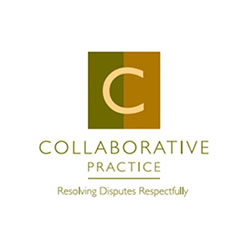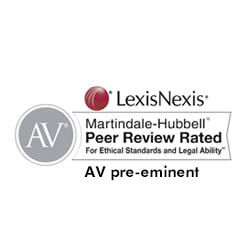Mediation is a client-centered voluntary alternative to the traditional litigation or adversarial method of resolving Matrimonial and Family Law disputes.
Read MoreLawrence N. Rothbart
Attorney At Law
Scroll Down
Practice Areas
Collaborative Practice or Collaborative Law is a client-centered voluntary alternative to the traditional litigation or adversarial method of resolving disputes.
Read MoreAdversarial Model or Litigation is the traditional process that most people think of when they think of resolving their differences or when they plan on obtaining a divorce.
Read MoreWhen legal action is necessary to resolve matrimonial problems, it is essential that you entrust these matters to a compassionate and knowledge family lawyer.
Read MoreWhen you are going through the emotional and difficult process of divorce, it is paramount that you have the assistance of a compassionate and caring New York City divorce lawyer.
Read MoreNew York’s family laws are complex and often require the assistance of a skilled and knowledgeable family lawyer to understand. Lawrence N. Rothbart is a seasoned New York family lawyer.
Read MoreDIVORCE WITH INTEGRITY
Lawrence N. Rothbart
Larry is a graduate of New York University School of Law and Brandeis University.
He has lectured at CLE accredited courses in matrimonial and family law and at colleges and was the principal author of the Association of the Bar of the City of New York, Committee on Matrimonial Law Report, “The case for Amending the NYS Domestic Relations Law to Permit No Fault Divorces”
Mr. Rothbart, focusing on all aspects of matrimonial and divorce law, offers the unique combination of expert adversarial advocacy, effective negotiation skills, collaborative law and mediation coupled with the experience of having worked within the New York State Court System for almost 20 years.
Frequently Asked Questions
Collaborative Law or Collaborative Practice is an innovative legal process in which parties involved in a legal dispute work together with lawyers and other professionals who are dedicated to resolving the case outside of court. Rather than battling in each other in litigation, the parties focus on reaching an amicable settlement through a collaborative approach. The parties focus on problem-solving, brainstorming solutions and using open communication to advance their interests.
What are the benefits of Collaborative Law or Collaborative Practice?There are several benefits to Collaborative Law or Collaborative Practice. Because the parties are openly communicating, they can freely share information with each other without the additional time and expense related to discovery requests. They can share the cost of appraisers or other experts. By working together, they can identify relevant issues and work together to solve them. Collaborative Practice helps insulate children from the dispute so that they are not negatively impacted by the litigation process. Collaborative Practice is often more affordable than litigation since all of the parties are working together, including the lawyers.
Is Collaborative Law or Collaborative Practice binding?The parties enter into Collaborative Law or Collaborative Practice voluntarily. They do not have to agree to use a Collaborative Practice approach if they do not like. However, many parties are able to amicably resolve their legal disputes by taking advantage of the Collaborative Practice process. If the parties reach an agreement in Collaborative Practice, they present this agreement to the court to incorporate into an official court order, which is binding on the parties. If the parties are unable to reach an agreement through Collaborative Practice, the attorneys must recuse themselves from the case and the parties hire new lawyers to represent them. Usually, nothing previously discussed in collaborative law sessions is binding on the parties unless the parties agree otherwise.
What is the difference between Collaborative Law or Collaborative Practice and mediation?Collaborative Law or Collaborative Practice involves the parties and their attorneys along with other professionals working together through structured negotiations. It empowers the parties to be an integral part of resolving their dispute with the help of supportive professionals. Mediation uses the help of a third-party professional who is neutral. The mediator uses conflict resolution skills to enhance the communication between the parties and motivate them to settle their dispute.
Contact Us For Consultation
Lawrence N. Rothbart
Lawrence N. Rothbart, Attorney at Law is a solo practitioner concentrating on Matrimonial Law located in downtown Manhattan
9 Prospect Park West, Ste. 6B
Brooklyn, NY 11215
Contact: (917)204-8268
Copyright © 2025 Mediation Results. All rights reserved.
Disclaimer | Site Map
Lawrence N. Rothbart
Lawrence N. Rothbart, Attorney at Law is a solo practitioner concentrating on Matrimonial Law located in downtown Manhattan
9 Prospect Park West, Ste. 6B
Brooklyn, NY 11215
Contact: (917)204-8268
Copyright © 2025 Mediation Results. All rights reserved.
Disclaimer | Site Map



